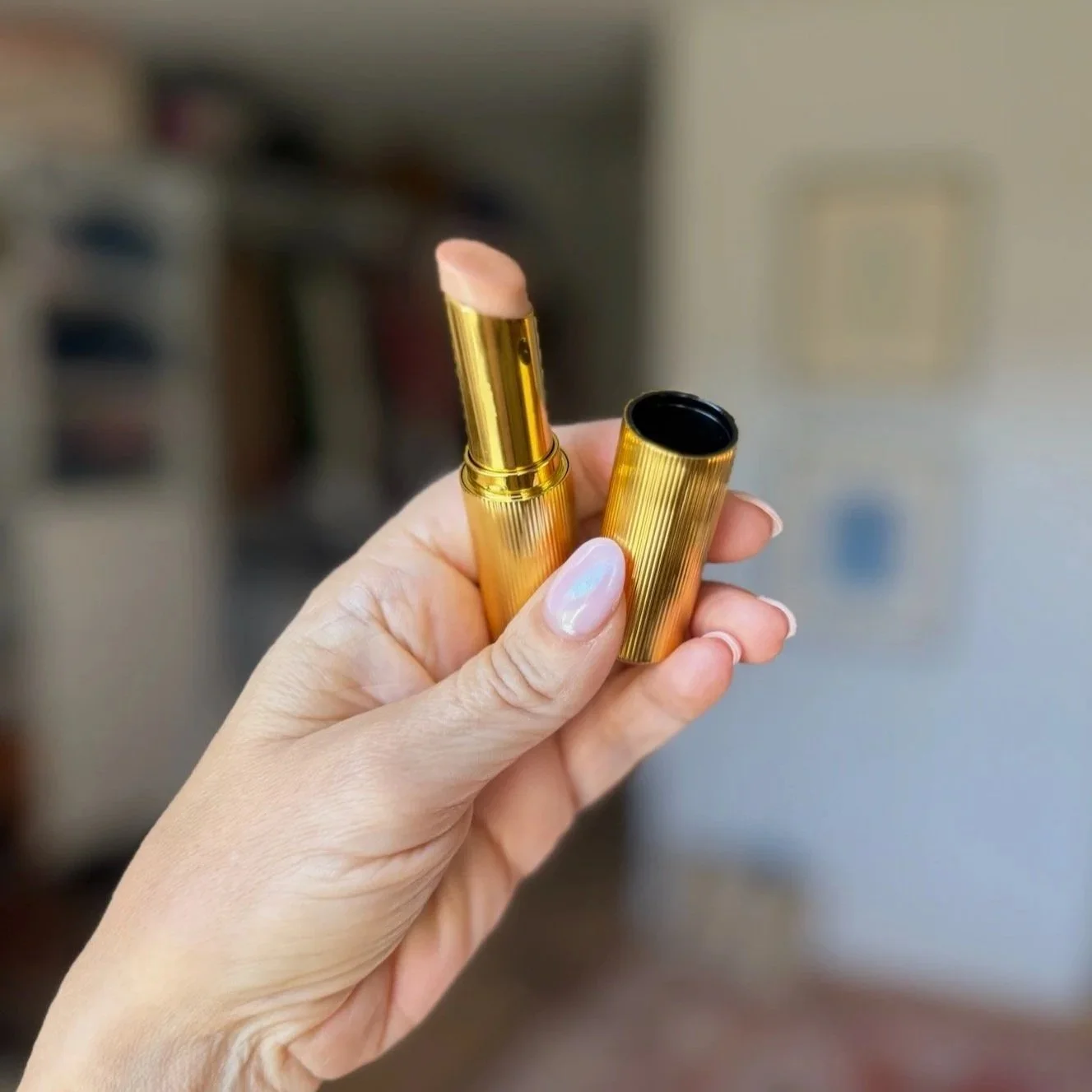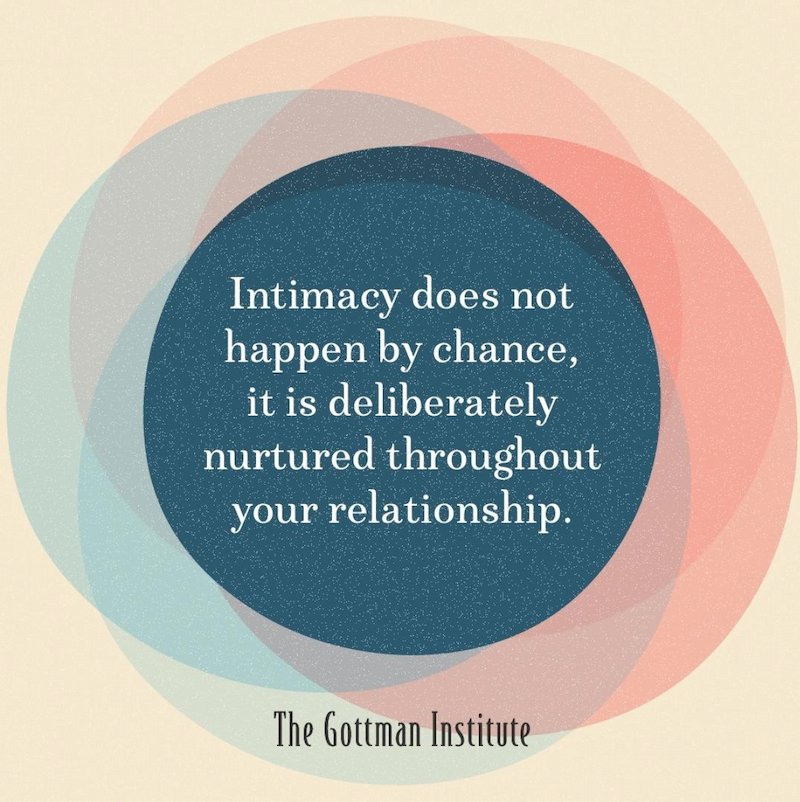10 Shocking Answers To Our Deepest, Darkest Questions About Sex, Desire, And Marriage
by The Candidly Team
There are approx. 13.5 million articles that are like, “how to get out of your sex rut after years of marriage!” And they all give versions of the same tips— “spice” things up, make a date night, wear lingerie, discuss your erotic fantasies.
Lol. As the kids say.
But few of them address this potentially fundamental, core reason for a “sex rut”— we don’t want to have sex.
Because after a day spent working full-time and taking care of the kids and taking care of the house and shouldering the invisible load of motherhood, and watching our spouse disappoint us in 37 ways that day, we’re carrying so much resentment for our partner, we can’t quite seem to summon the desire to jump in the sack.
So we sought out the advice of Certified Gottman Institute therapist and Licensed Clinical Psychologist Dr. Vagdevi Meunier, and asked her 10 real, surprising questions about sex drives, resentment, and marriage.
Her answers honestly shocked us. Not in some clickbaity way. In like, a very real way that we can’t stop thinking about.
1. If our husband hasn’t put the toilet seat down for the 14th time that week, and forgot to make time to research summer camps for the kids, how on earth are we supposed to summon a sexual desire for this person?
The questions I would ask are, “How good is your husband in bed? Do you look forward to having sex with him? Does he pleasure or satisfy you?” If the answer is yes, I would ask, “then why do you care what he is doing with the toilet seat or summer camp? Why put all those in the same basket?” See him as a man who is hot in bed and a lousy planner or a mindless urinator.
Otherwise, you are telling yourself that you cannot possibly enjoy sex with someone who is imperfect, and you go into the sexual experience carrying emotional baggage into bed with you.
There’s a problem if a woman perceives sex as something she gives her husband, to please him, or give him pleasure, or meet his emotional needs. If she sees it as something she is giving and he is taking, I can understand why romantic desire would wane for someone she sees as taking more than he is giving. But this implies that the sex is for him and she is the object or gift she gives to him for his pleasure.
So I would suggest she consider getting very selfish about sex. That she consider sex something he has to do for her precisely because he has failed to keep his word or promise on the toilet seat and summer camp. Sex becomes a way for him to atone for his imperfections as a husband and sex becomes a place where she receives, takes, and enjoys pleasure selfishly for herself and from him also because she has too many responsibilities and she could really use a little TLC. From this perspective, she has sex with her husband when she feels like she might want some sexual intimacy, pleasure, or an orgasm.
2. Put more generally, how do we feel attracted to a partner for whom we carry resentment?
I don’t buy into the premise that disagreements and conflicts should be given so much importance or weight.
Happy, satisfied couples focus attention on building friendship, sharing fondness and admiration, and turning towards each other enthusiastically. And sex is one of the best ways to bid for and turn towards each other with great passion, joy and playfulness.
Of course, if the husband in question is harsh, rude, or contemptuous then the basic tenets of friendship, which are safety and trust, are violated, so then turning towards becomes much more difficult.
When couples focus on friendship, trust, and commitment in positive ways, they are more likely to create, what the Gottman Institute calls, “a positive perspective.” When we are in a positive perspective, we cut our partners some slack, we see their failures as temporary, situational, and fixable so we stay optimistic, hopeful, and proud of what we have accomplished as a team.
In that kind of atmosphere, summoning up sexual desire is almost effortless. Throw in a few additional skills in the husband such as learning how to increase romance and eroticism in the relationship, engage in foreplay, and learn how to please his partner’s sexual desires, and we have a potent combination for passionate sex.
3. Here’s an easy question: how do we “fix” our resentment?
We don’t “fix” resentment, because the more we focus on resentment in an effort to fix it, the more it will grow.
Resentment feeds on negative energy. Our brains tend to remember and rehearse negativity in order to survive and not make the same mistakes. So when I think of one legitimate reason for my resentment, my brain immediately finds another similar example that also caused resentment. Soon, I may find myself lost in a forest of resentment surrounded and haunted by many different examples and versions of what causes me that negative feeling.
So then what do we do? The best strategy is to build gratitude and appreciation. When we practice gratitude, we begin to see our lives as wonderful and ourselves as lucky, and the more we do it, the more wonderful things happen to us.
When we build positivity, we generate more positivity from within and also invite more from outside. So the husband who was forgetting to organize camp begins to feel more positive about the partner and “want” to please her by doing things she asks him to do. He prioritizes her needs, he sees her needs as equally important to his, and he gets pleasure from seeing her happy and proud of him. It becomes a positive spiral that also feeds on itself.
4. Is there something both partners can do each day to work on their resentment levels so that instead of seeing them as a person who lets us down, they’re a person we want to jump into bed with?
I would suggest that each partner develop a daily personal ritual of remembering and rehearsing good moments in the relationship.
When you are sitting on that toilet seat (that you had to put down yourself), take out your phone and scroll through your personal photos. Find moments that brought joy, peace, or happiness and try to put yourself back there. Imagine it in vivid detail, try to bring back the positive feelings into your body and heart, and make a commitment to revisit that place or memory again.
Second, when you experience something positive (for example a job promotion or an accomplishment), make sure to really revel in and describe the experience in detail with positive energy to your partner. When we rehearse positive experiences and add some additional oomph to it, we reap a lot of benefits in the long run. Laugh a lot, be playful, have lighthearted fun. All of this creates an atmosphere where our perceptions of our home, our partners, and our lives become more rosy and inviting.
5. How can women balance the very real combination of having full time jobs, carrying the entire “invisible load of motherhood” while also legitimately WANTING to make sexy time with their husbands who just straight-up don’t shoulder as much burden?
Modern husbands and fathers shoulder a lot more responsibilities and are much more involved in the running of the household than our parents generation. But for couples for whom the above scenario is true, then self care and replenishing one’s energy becomes even more important.
As Dr. Emily Nagoski talks about in her book, Come As You Are, women tend to have responsive desire, which means that a woman can feel tired, exhausted, and unmotivated, but with a little massage, some making out, etc. she begins to get in the mood.
She is more likely to get in the mood if the husband can help her finish up her chores for the evening, or gives her time every week to go to her yoga class or hang out with her girlfriends. When she feels nourished, she has more energy for activities that feel like luxuries.
6. Is this “sex rut” many married couples find themselves in due to this resentment? What else is it from?
The short answer is that sexual ruts are inevitable, given the way we understand and engage in sex in the traditional heterosexual marriage. Two people come together with lots of fantasies and desires, and little by little, we X out items from each of our lists until we are left with a short list of 5-8 things we do in sex every time.
So then we try to have sex with the same person, while trying to manage a complex life outside the bedroom, and we try to repeat this experience 500 times.
We should be asking why are more people NOT bored and burnt out on this? This is a recipe for a decline in desire.
7. What can our partners do to help us deal with this resentment? How can they help get us in the mood for sex? How do we tell them this?
I think partners cannot help us deal with the resentment because partners don’t cause resentment. Our perceptions of their behavior, their failures, or our assumptions about their motives and intentions is what causes resentment.
So don’t give your partner power over your mood state or your well being. If you want them to help you get in the mood for sex, find things that make you feel sexy and show or tell them.
Bring yourself to sex, don’t expect them to cajole and convince you.
If someone has to convince you to enter into a pleasurable experience that will help you relax, lower your stress hormones, build loving bonds with your partner, and increase happiness and long life for you, then perhaps you are sacrificing a lot for a little pettiness. Have lots of sex because it is good for your physical, mental, emotional and spiritual health without holding back and hold your partner accountable outside the bedroom for toilet seats and summer camps without letting it creep into your sexual pleasures.
8. What are a few concrete, clear ways we can start to feel sexually attracted again to our partners under these circumstances?
Here is a surprising answer -- don’t try to feel sexually attracted to your partner. Why?
Reverse psychology: When you try purposefully not to be attracted to something, your brain betrays you and shows you all the reasons to be attracted to it. Try telling yourself not to want chocolate (if you love it as much as I do) and see what happens.
Sexual attraction is the result, the outcome, not the goal or the task: So begin to see the good in your partner — find ways to enjoy time with your partner, especially doing things your partner loves to do and you will begin to see them at their best and the attraction that was presumably once there will rise up again.
Focus on yourself: Make yourself sexually attractive to yourself first. Come to love your looks, your body, your sexiness. Find clothes, makeup, lighting, or sensory experiences that arouse your erotic energy, practice energizing breaths, fantasize about what will bring you pleasure, share your erotic fantasies with your partner, and soon you will begin to feel the sexual attraction rise up again. When you feel sexy and desirable, you will be irresistible to your partner and vice versa.
9. How do we tell our partners WHY we're not in the mood for sex, without totally shutting them down?
The Gottman Institute suggest creating rituals of connection around sex that allow both partners to invite as well as refuse sex. For example, certain coded text messages, dolls or stuffed animals on the pillow, certain music etc.
Separate sexual intercourse from foreplay and sensory enjoyment so that you can enjoy music and cuddle together, or be playful and have a candle light massage to relax each other, even if you don’t plan to have sex.
Second, consider respecting and appreciating your partner’s indirect bids or responses. If one person says, “let’s have sex,” and the other person makes an excuse (the famous headache), then see that as a way to let you down gently and not as a rejection. Or make an offer for tonight, but be willing to negotiate for another night.
Finally, make an offer for a cuddle or a make out session and assume that sex will follow if both people get turned on and if not, your offer was still accepted as it stood.
10. What roles do appreciation and resentment often play in the bedroom itself?
It is easy to see how appreciation would be an important aspect of bedroom experiences—the more we see our partners enjoying our company, our bodies, and our techniques, the more we are likely to want to repeat it.
Resentment, on the other hand, may be a sign of unexpressed desires or complaints, so consider transforming resentment into positive pillow talk.
For example, if my partner’s kisses leave me a little turned off, notice how my resentment becomes an excuse to avoid sex. It’s easier to say, “let’s try different types of kisses and see which ones we both like.” Don’t let your ego dominate your sex life, whether you are a man or a woman.
Accept and enjoy what is being offered without noticing what is missing.
Vagdevi Meunier, Psy.D., Master Trainer for the Gottman Institute and Licensed Clinical Psychologist in Austin, Texas, is a Certified Gottman therapist, consultant, and couples workshop leader. She has over 35 years of experience as a therapist and educator. She is the founder of The Center for Relationships. Follow her on: Facebook, Instagram, Twitter.


















